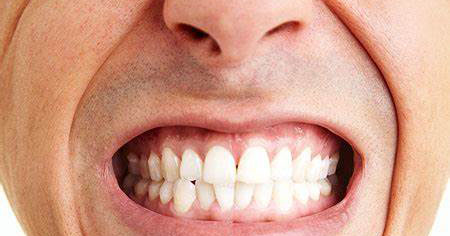
Bruxism is the medical term for the grinding of teeth or the clenching of jaws. If you have bruxism, you may unconsciously clench your teeth when you’re awake (awake bruxism) or clench or grind them during sleep (sleep bruxism).
Sleep bruxism is considered a sleep-related movement disorder. People who clench or grind their teeth (brux) during sleep are more likely to have other sleep disorders, such as snoring and pauses in breathing (sleep apnea). Mild bruxism may not require treatment. However, in some people, bruxism can be frequent and severe enough to lead to jaw disorders, headaches, damaged teeth and other problems. Because you may have sleep bruxism and be unaware of it until complications develop, it’s important to know the signs and symptoms of bruxism and to seek regular dental care.
Causes of Bruxism
Experts aren’t always sure why bruxism happens. The cause of bruxism can involve biological (e.g. genetics), psychological (e.g. personality traits) and/or external factors such as smoking, caffeine, alcohol and some drugs. Your dentist or other oral health professional can assess the influence of these factors.
- Alignment – In some cases, kids may grind because the top and bottom teeth aren’t aligned properly. Others do it as a response to pain, such as from an earache or teething. Kids might grind their teeth as a way to ease the pain, just as they might rub a sore muscle. Many kids outgrow these fairly common causes for grinding.
- Stress — usually nervous tension or anger — is another cause. For instance, a child might worry about a test at school or a change in routine (a new sibling or a new teacher). Even arguing with parents and siblings can cause enough stress to prompt teeth grinding or jaw clenching.
- Some kids who are hyperactive also have bruxism. And sometimes kids with other medical conditions (such as cerebral palsy) or who take certain medicines can develop bruxism.
Why Bruxism is harmful?
In some cases, chronic teeth grinding can result in a fracturing, loosening, or loss of teeth. The chronic grinding may wear teeth down to stumps. When these events happen, bridges, crowns, root canals, implants, partial dentures, and even complete dentures may be needed. Not only can severe grinding damage teeth and result in tooth loss, it can also affect your jaws, cause or worsen TMD/TMJ, and even change the appearance of your face.
Problems caused by teeth grinding may include:
- cracked tooth enamel
- more wear and tear on the teeth than is normal
- broken teeth or broken restorations (for example, fillings)
- strain on the jaw joint
- pain in the jaw joint or limited movement
- sore jaw muscles
- tooth loss (rare)
- enlargement of the jaw muscles (rare).
- teeth being more sensitive to hot and cold things
Because some bruxism is a child’s natural reaction to growth and development, most cases can’t be prevented. Most kids outgrow bruxism, but a combination of parental observation and dental visits can help keep the problem in check until they do.



